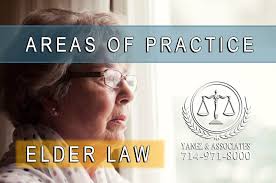Elder Law vs Estate Planning: Key Differences and Legal Insights
Elder law and estate planning are two important legal areas that affect how individuals plan for the future, especially as they age. Both fields focus on protecting the rights and assets of individuals, but they serve different purposes. While elder law primarily addresses the needs of older adults, estate planning deals with asset distribution and financial decisions for people of any age. Understanding the differences between these two areas can help you make informed decisions about your legal and financial future.
Understanding Elder Law: What it Covers

Elder law focuses on legal issues that specifically impact seniors. It aims to address the unique challenges that come with aging, including health care, long-term care, and financial security. Elder law attorneys assist with matters such as:
- Medicaid planning and qualification
- Long-term care options and nursing home issues
- Guardianship and conservatorship
- Social Security and retirement benefits
- Health care directives and power of attorney
- Protection from elder abuse and exploitation
This legal field ensures that older adults have the right legal protections in place to safeguard their health, financial stability, and personal rights. Elder law also addresses potential challenges that arise as a person’s physical or cognitive abilities decline, providing a safety net for future care.
Estate Planning: Purpose and Scope
Estate planning is the process of organizing how your assets will be managed and distributed after your death, but it also involves making decisions for your care in the event of incapacity. Key elements of estate planning include:
- Wills and trusts for asset distribution
- Health care proxies and living wills
- Power of attorney for financial decisions
- Tax planning to minimize estate taxes
- Beneficiary designations for life insurance and retirement accounts
Estate planning is important for anyone, regardless of age, as it allows you to control how your estate is handled and reduces the burden on loved ones. It also ensures that your wishes regarding health care, finances, and dependents are honored in the event you are unable to make decisions yourself.
How Elder Law and Estate Planning Differ
Although elder law and estate planning often overlap, they serve different purposes and focus on different stages of life. Elder law deals with issues that arise during a person’s later years, while estate planning is about preparing for the distribution of assets after death. Here’s how they differ:
| Aspect | Elder Law | Estate Planning |
|---|---|---|
| Primary Focus | Addressing legal and financial concerns in old age | Organizing asset distribution after death |
| Target Group | Primarily older adults or their caregivers | Any individual, regardless of age |
| Key Issues | Long-term care, Medicaid, guardianship | Wills, trusts, beneficiary designations |
| Legal Tools | Medicaid planning, powers of attorney, health care directives | Wills, living trusts, power of attorney for finances |
In simple terms, elder law is more focused on ensuring quality of life during a person’s later years, while estate planning is about making sure their assets are handled according to their wishes after they pass away.
Legal Tools in Elder Law
Elder law attorneys use a variety of legal tools to ensure their clients are well-protected as they age. These tools address health care, financial security, and long-term care needs. Some of the most commonly used legal instruments in elder law include:
- Power of Attorney (POA): A legal document allowing a trusted person to make decisions on your behalf, usually in financial matters.
- Health Care Directives: Instructions for your medical care in case you become unable to make decisions. This may include a living will or a health care proxy.
- Medicaid Planning: Legal strategies to help you qualify for Medicaid benefits, which can cover long-term care costs without depleting your assets.
- Guardianship: A legal process where a court appoints a guardian to manage the affairs of an incapacitated adult.
- Living Trusts: A trust created to manage your assets during your lifetime and distribute them after your death, which can help avoid probate.
These tools help protect your finances, secure your health care decisions, and ensure you have trusted individuals managing your affairs if you lose capacity.
Essential Estate Planning Documents
Estate planning requires certain key documents to ensure that your wishes are followed after death and during periods of incapacity. Here are the essential documents you should have in place:
- Will: This document specifies how your assets should be distributed after your death and allows you to appoint guardians for minor children.
- Living Trust: A legal entity that holds your assets during your life and transfers them directly to your beneficiaries upon your death, avoiding the probate process.
- Power of Attorney: Assigns someone to manage your financial affairs if you are unable to do so yourself.
- Health Care Proxy: Allows a designated person to make medical decisions on your behalf if you are incapacitated.
- Living Will: Provides instructions for your medical care, including end-of-life decisions, if you become unable to communicate your wishes.
- Beneficiary Designations: Ensure that assets like life insurance policies, retirement accounts, and payable-on-death accounts are passed directly to named beneficiaries without going through probate.
Having these documents in place ensures that your financial and health care decisions are carried out according to your preferences and provides peace of mind for you and your loved ones.
When to Choose Elder Law vs Estate Planning
Deciding whether to focus on elder law or estate planning depends on your current situation and future needs. While both address important aspects of long-term care and asset management, the timing and circumstances in which you choose one over the other can vary.
You might consider elder law when:
- You are approaching retirement or are already retired and want to secure your future health care and financial well-being.
- You need assistance with Medicaid planning or are worried about the cost of long-term care.
- You want legal protection against elder abuse or financial exploitation.
- You have concerns about your capacity to make decisions and need powers of attorney or guardianship arrangements.
On the other hand, estate planning is essential when:
- You want to control how your assets will be distributed after your death.
- You are planning for your family’s financial security and want to minimize estate taxes.
- You have minor children or dependents and need to appoint a guardian.
- You wish to create a trust to manage your assets during your lifetime and after your death.
- You need to update your will, trust, or beneficiary designations to reflect life changes such as marriage, divorce, or the birth of a child.
The choice between elder law and estate planning often comes down to your current life stage. Elder law helps ensure your well-being in later years, while estate planning focuses on how your assets are handled after you pass away.
FAQ on Elder Law and Estate Planning
Here are some common questions people have about elder law and estate planning:
- Do I need both an elder law attorney and an estate planning attorney?
It depends on your needs. Many elder law attorneys handle estate planning, but if you have complex financial assets or health care concerns, working with both might be beneficial. - When should I start estate planning?
It’s never too early to start estate planning. Ideally, you should begin as soon as you have assets or dependents to protect. Life events such as marriage, children, or buying a home are good triggers to start the process. - Can elder law help me protect my assets from nursing home costs?
Yes, Medicaid planning under elder law helps protect your assets while ensuring you qualify for Medicaid to cover long-term care costs. - What happens if I don’t have a will or estate plan?
If you die without a will, your assets will be distributed according to state laws, which may not align with your wishes. This process is called intestate succession. - What legal documents do I need for elder care?
Important documents include a power of attorney, health care directives, living will, and possibly a trust, depending on your situation.
Conclusion on Elder Law and Estate Planning Decisions
Both elder law and estate planning play critical roles in securing your future, but they serve different purposes at different stages of life. Elder law helps protect your rights, finances, and health care needs as you age, while estate planning focuses on ensuring your assets are distributed according to your wishes after death. Ideally, you should consider both approaches to fully protect your well-being and legacy.
By starting early with estate planning and consulting with an elder law attorney when necessary, you can ensure that both your present and future needs are addressed. Having the right legal tools in place provides peace of mind for you and your loved ones, knowing that your wishes will be respected in every aspect of life and death.


